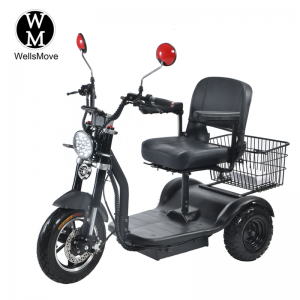In today’s fast-paced world, e-scooters are becoming increasingly popular as a convenient and efficient mode of transportation for individuals with limited mobility. However, the question arises: is an electric scooter really a vehicle, or does it transcend this classification? In this blog, we’ll delve into the complexities of e-scooters, looking at their functionality, legal status and wider impact on the lives of those who rely on them.
Learn about mobility scooters:
Mobility scooters are battery-powered devices designed to help people with limited mobility travel distances that would otherwise be challenging for them. These portable electric vehicles typically consist of a seat, handlebars or tiller, wheels and a battery pack. Mobility scooters vary in size and design, from compact models suitable for indoor use to heavy-duty models suitable for outdoor terrain.
Functional aspects of mobility scooters:
From a functional perspective, mobility scooters share some similarities with traditional vehicles. They have the ability to transport people from one place to another, albeit relatively slowly. These scooters feature powerful batteries and can travel up to 30 miles on a single charge, depending on the model and battery capacity.
Legality and Classification:
The legal status of mobility scooters varies in different jurisdictions. In some countries, they fall under the definition of a vehicle and are subject to certain regulations, such as age restrictions, licensing requirements and compliance with traffic rules. Other jurisdictions do not classify it as a vehicle but as an assistive device for people with disabilities, allowing them to operate it without a license.
Key considerations:
To determine whether a mobility scooter is a vehicle, there are several factors to consider. An important aspect is the intended use of the device. While e-scooters serve primarily as transportation, their primary purpose is to allow individuals with limited mobility to regain their independence and fully participate in society. This dual functionality blurs the line between a mere vehicle and a highly personalized assistive device.
Wider impact and social perception:
Beyond their functional and legal aspects, mobility scooters have a significant impact on the lives of those who rely on them. These devices can promote better mental health because they provide a sense of autonomy and allow individuals to participate in a variety of activities that they may not have been able to participate in before. They enable individuals to socialize, run errands, and enjoy outdoor spaces that they may not have been able to participate in before. Inaccessible.
In summary, while e-scooters have certain vehicle-like characteristics, their wide range of functions, legal classification and wider impact on individuals’ lives raise questions about their classification as mere vehicles. These innovative devices undoubtedly provide important transportation aids for individuals with limited mobility, but they go beyond the traditional understanding of vehicles to provide a new sense of independence and mobility. Therefore, it is crucial to recognize their unique place in the world of mobility aids and view them not just as transportation, but as empowering devices that help individuals regain their freedom and actively participate in society.
Post time: Nov-15-2023



